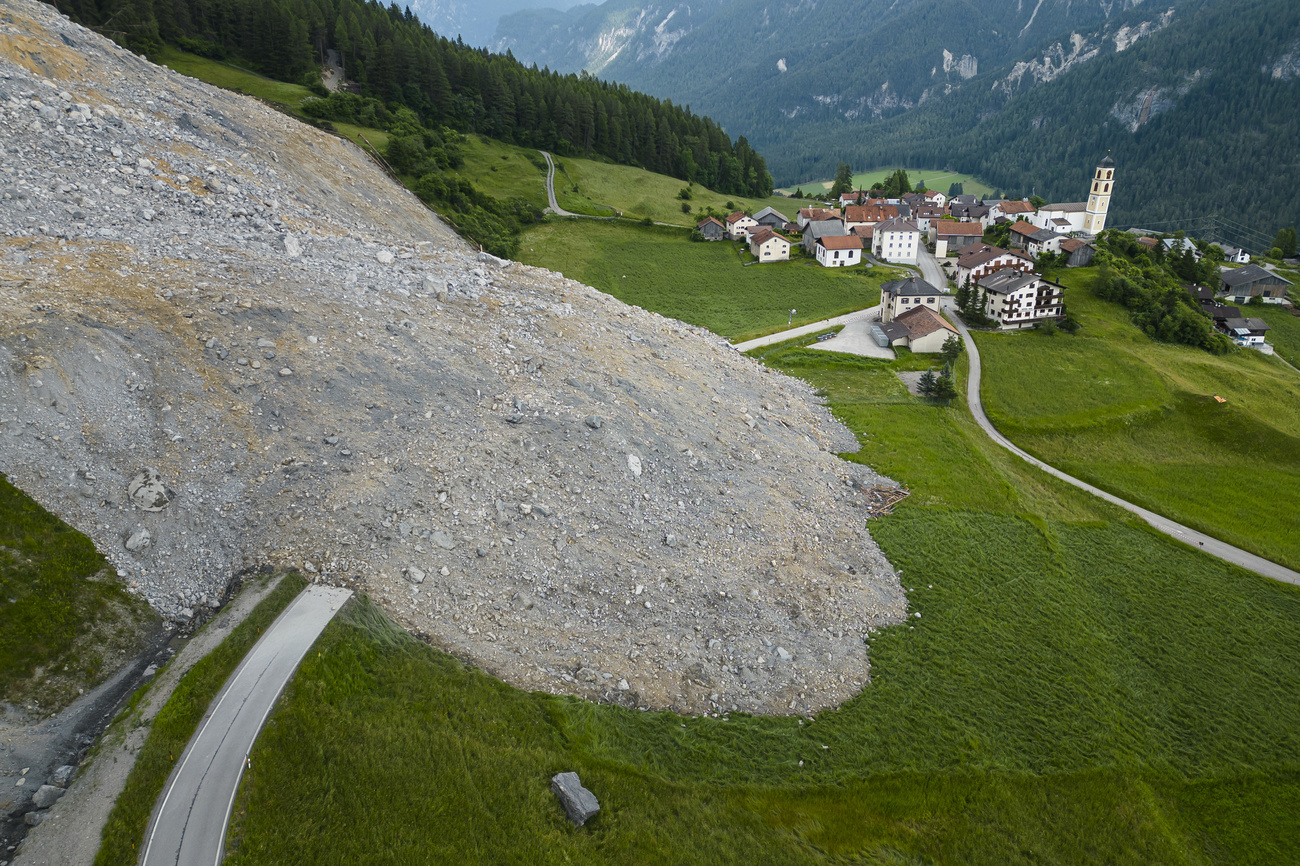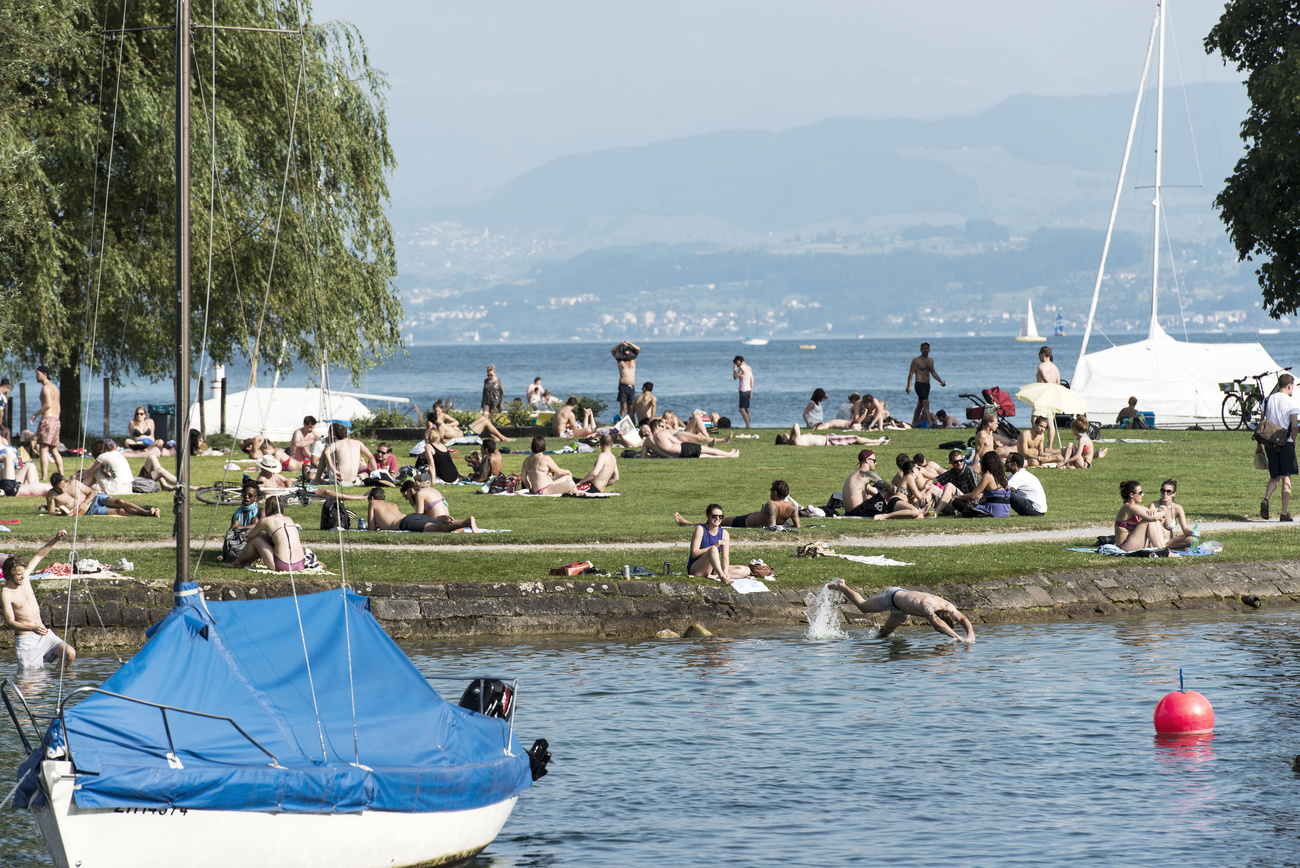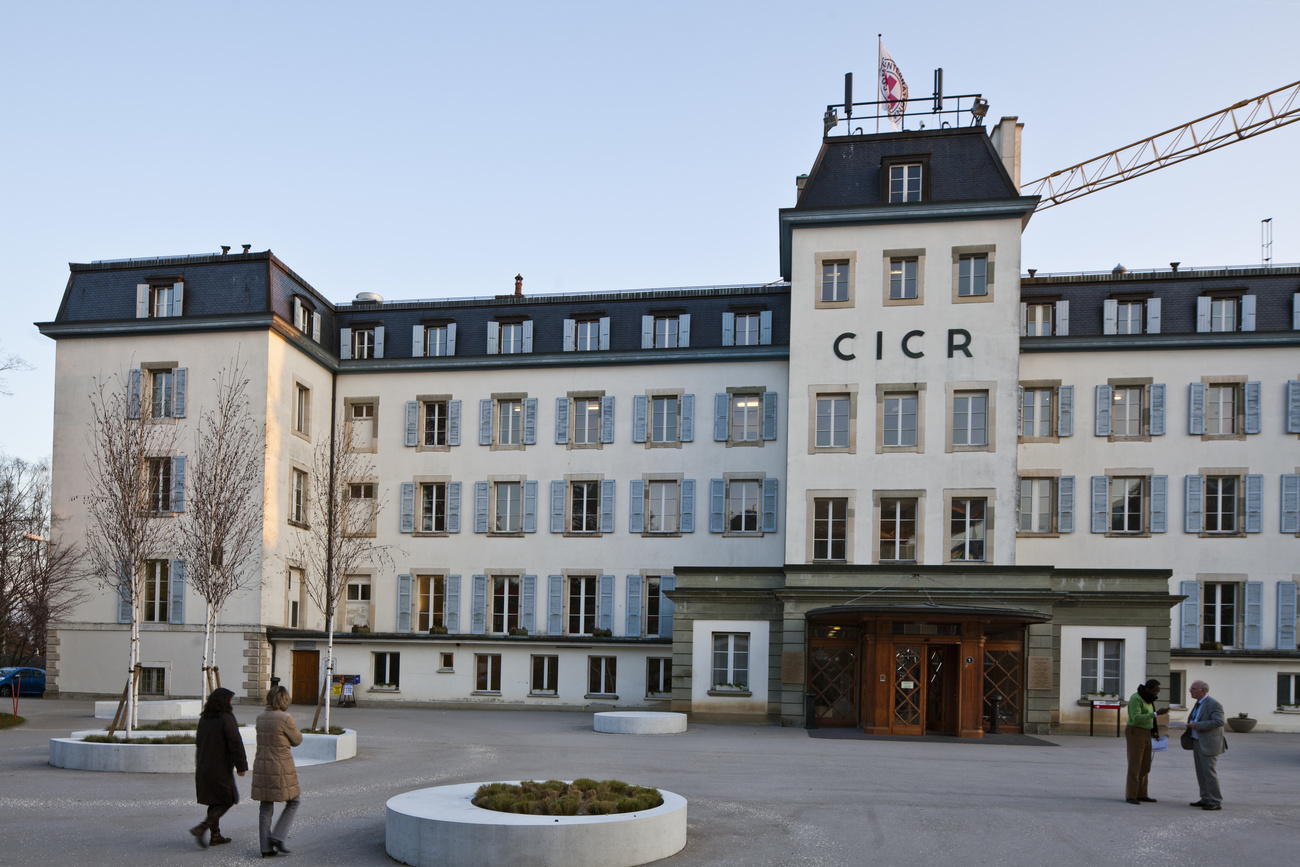
Switzerland Today
Dear Swiss abroad,
Return home. These two simple words conjure up many different images. For the people of Brienz/Brinzauls (in photo above) it must seem like a miracle to know they can go back - albeit briefly - to their homes in the mountain village in southeast Switzerland, which was threatened by a collapsing mountain.
Last week most of the crumbling mountain came down narrowly missing their village. Now the authorities say the evacuated residents can return during the day. Meadows can be farmed again and little by little life can return to normal.

In the news: higher interest rate, CO2 emissions and soil, and residents return to Brienz.
- The Swiss National Bank (SNB) says important lessons must be drawn from the crisis that led to the takeover of Credit Suisse, the country’s second biggest bank, by its rival UBS. Measures are needed to strengthen banks’ resilience, it said today.
- The Swiss National Bank also announced today that it has raised its policy interest rate by a quarter-percentage point to 1.75% as seeks to combat inflation. It said “it cannot be ruled out” that more hikes will be necessary.
- A Swiss study shows that emissions of carbon dioxide by soil microbes into the Earth’s atmosphere will accelerate by the end of the century, potentially surging by up to 40% – most significantly in the polar regions.
- The mountain village of Brienz/Brinzauls in canton Graubünden, which narrowly escaped a major landslide, will soon welcome back its residents during the day from June 26. However, the water supply is still uncertain.

Which is the best city in Switzerland?
Every year, the Economist Group examines the quality of life in major cities around the world. Swiss cities regularly do well in the annual ranking. This year Zurich (in photo) and Geneva were again in the top 10 of the 2023 Global Livability Index, published by The Economist Intelligence Unit (EIU). But they have slipped a couple of places in the ranking.
This year Zurich is sixth and Geneva is one place behind in seventh place. In 2022, Zurich took the third spot and Geneva was sixth. Both cities scored the highest marks for healthcare. Zurich also had a high score for culture and environment.
EIU researchers say Vienna is the best place to live in 2023. The Austrian capital has held this position consistently over the past few years, except for 2021 due to the Covid-19 pandemic. Copenhagen, Denmark, and Melbourne, Australia, followed in the number two and three podium places, respectively.

Investigation puts spotlight on ICRC salaries.
The International Committee of the Red Cross (ICRC), which has its global headquarters in Geneva (in photo), has been in the press recently, but not for its humanitarian field work. The ICRC faces a huge financial hole after several difficult years and an overall budget that has almost doubled in ten years to CHF2.8 billion for 2023.
Consequently, the ICRC must carry out large cuts to humanitarian staff and offices around the world. It has also been calling on big donors to step in to provide urgently needed funds. On Wednesday the Geneva cantonal government pledged CHF40 million ($44.8 million) to carry out essential humanitarian work in 2023 and as a “strong signal” to other donors to come forward.
Fundraising is particularly difficult at the moment. ICRC director Robert Mardini told media in March that there were “fewer donations for humanitarian aid in general” and that the Russia-Ukraine conflict had led to crises in other parts of the world “being forgotten”.
But some employees are frustrated with the direction the ICRC has taken over past decade. In early June, RTS reported that 2,500 of ICRC employees had signed an open letter to the organisation’s management to express their anger. They blame previous executives for what they call a “budgetary drift”. They argue that the ICRC is too big and has lost sight of its core mission: protecting civilians in conflict, visiting prisoners, and reuniting lost relatives.
Today, an investigation published by Swiss public radio, RTSExternal link, revealed the high salaries and severance payments earned by former top ICRC officials.
US tax data seen by RTS reporters showed that former ICRC President Peter Maurer, for example, earned up to CHF437,000 per year during the 2010s, while former ICRC general manager Yves Daccord took home CHF330,000 a year. In 2021, the six other ICRC directors received annual salaries of between CHF250,000 and CHF290,000.
ICRC’s director of human resources, Claire Sperandio, defended the salaries: “It is an organisation that has highly professionalised, with more than 20,000 employees and a budget of over CHF2 billion. We therefore need the best possible talent in our management functions. To do this, we must be attractive and competitive, the salary is part of that.”

Press review: resignation of Swiss Interior Minister Alain Berset.
The distinctive image of Alain Berset, who announced his resignation on Wednesday, was all over the Swiss papers this morning. The papers were unanimous: the interior minister had to go at some point after 12 years in government. But they were divided on his legacy. French-speaking media praised his handling of the Covid-19 pandemic, while German-language newspapers focused more on his failings.
Berset’s departure was logical, said La Liberté, coming just at the right time. Last autumn, the Swiss people accepted reforms of the pension system. He had nothing to gain from his position, added the Watson.ch online media site.
The failure to reform the healthcare system is certainly a shadow over Berset’s head, “but would another minister have done better?” asks La Liberté.
“With hindsight, Alain Berset can be credited with managing the worst crisis to hit our country since the Second World War,” says Arcinfo, referring to the Covid–19 pandemic. But whatever he said, it was becoming virtually impossible for Berset to stand for a fourth term.
With his ability to compromise and his pragmatism, Berset was one of the most powerful cabinet ministers, wrote Le Temps. “This influence, of which he was very proud, was also enhanced by his sense of showmanship,” it said. But it also highlighted Berset’s failure to control rising health costs and health insurance premiums, and his absence on the EU-Swiss relations dossier.
NZZ was more critical. Berset missed the “right moment” to leave some time ago, like just after the latest anti-Covid measures were lifted, it said.
The Tages-Anzeiger also took a swipe saying Berset “was able to indulge in an unusual number of things in the overly correct country that is Switzerland”, citing the “Coronaleaks” affair, the attempted blackmail affair and the minister’s private flight to France. While acknowledging his role in managing the pandemic, the paper said his political record was modest.
“The only major legacy is that the Socialist cabinet minister raised the retirement age for women to 65,” said the CH Media group.
He wasn’t the best cabinet minister Switzerland has ever known, but he wasn’t the worst either by a long way, added Südostschweiz. “You could count on him and his policies: that’s praise that will not really be tarnished by private affairs.”

In compliance with the JTI standards
More: SWI swissinfo.ch certified by the Journalism Trust Initiative
